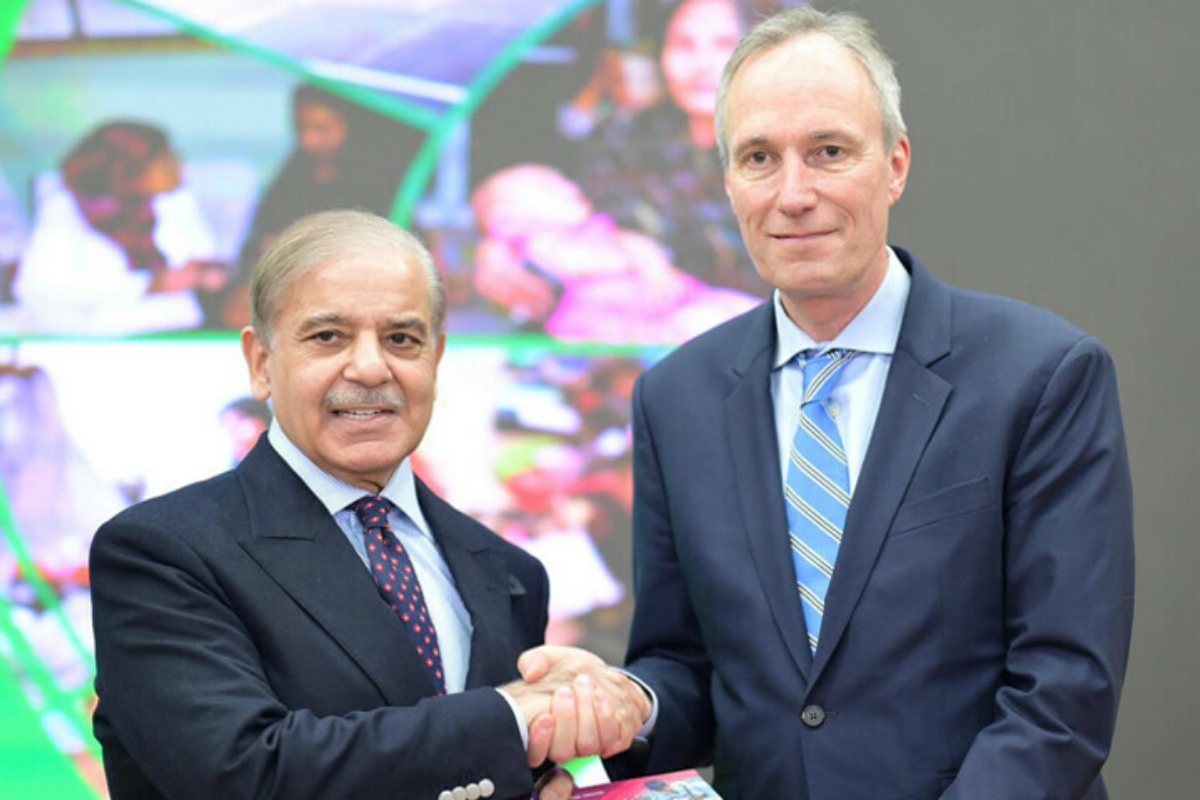ISLAMABAD: On Monday, Prime Minister (PM) Shehbaz Sharif welcomed the World Bank’s (WB) $40 billion investment in Pakistan, saying it would usher in “a new chapter” in several economic areas.
PM Shehbaz made these remarks during a meeting with the World Bank Executive Directors’ team in Islamabad, according to a news statement issued by the PM Office Media Wing.
The prime minister remarked that the WB and Pakistan have partnered for more than 70 years as he welcomed the team to Pakistan.
“Pakistan has greatly benefited from its partnership with the World Bank,” he said, adding the WB provided substantial assistance to the people affected by the 2022 floods in Pakistan.
PM Shehbaz said that the World Bank’s $40 billion investment in Pakistan is part of its most recent Country Partnership Framework, which he termed very promising.
“A new chapter of progress would begin in Pakistan with $20 billion allocated for various projects in health, education, youth development, and other social sectors,” he said.
The prime minister said that the International Finance Corporation (IFC) will accelerate Pakistan’s economic development by making an additional $20 billion in private sector investments. He also expressed gratitude for the WB’s faith in the government’s plans, noting that Pakistan’s institutional and economic reform program was progressing quickly.
“The country’s economy is on the right path and moving towards growth,” The press release quoted PM Shehbaz as saying that sustainable economic development requires further efforts.
He credited the economic turnaround to the hard work of the government’s economic team. The prime minister observed that Pakistan’s exports and remittances were increasing and added that the reduction in interest rates was boosting investment in the production sector.
He further said that the government was introducing transparency in the system to control corruption and reiterated that digitization remained a priority in the Federal Board of Revenue (FBR) reforms. He added that the power sector reforms aimed to ensure an uninterrupted electricity supply and reduce losses.
“The Special Investment Facilitation Council (SIFC) has created an attractive environment for investment in Pakistan, functioning under a unique system involving all stakeholders,” he added.
The prime minister maintained that instead of relying on loans, they prioritized investment and partnerships. The delegation members praised Pakistan for its ongoing reform program and its effective implementation.
The delegation noted that the positive outcomes of the government’s ongoing reform initiatives were being felt, which a promising development was.
“They said under the leadership of Prime Minister Shehbaz Sharif, Pakistan’s journey of economic reforms was progressing ‘quickly’. The delegation also appreciated the government’s reform measures in the energy, industrial and export sectors, privatization, revenue generation, and other key areas,” the statement read.
A nine-member World Bank Executive Directors delegation is visiting Pakistan to oversee the portfolios of various countries within the World Bank. The delegation will discuss economic development projects and investment opportunities in Pakistan.
Ministers Ahsan Iqbal, Ahad Khan Cheema, Sardar Owais Khan Leghari, Dr. Musadik Malik, Ministers of State Ali Pervaiz Malik and Shaza Fatima Khawaja, Prime Minister’s Coordinator Romina Khurshid Alam, Senator Sherry Rehman, Member of the National Assembly Nafisa Shah, Prime Minister’s Representative for the Polio Program Ayesha Raza Farooq, and other senior officials attended the meeti
[embedpost slug=”world-bank-team-arrives-in-pakistan-to-strengthen-economic-collaboration/”]



















